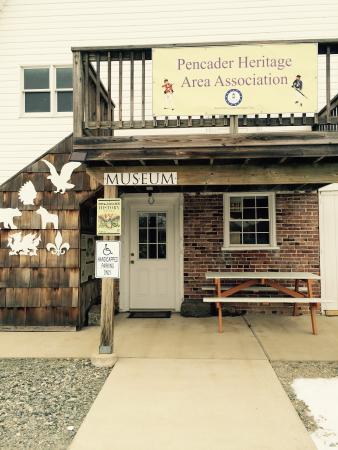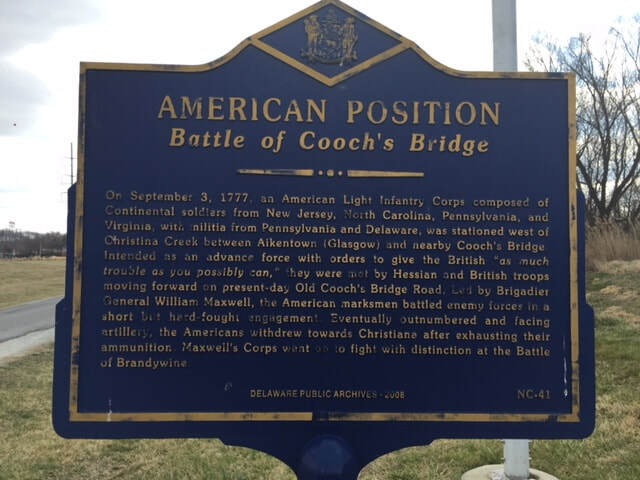- Published on
Locals Remember the Battle of Cooch's Bridge

At the start of September, 1777, Washington was doing all he could to block the British advance on Philadelphia. He had four natural barriers to work with: the Christina River/White Clay Creek, the Red Clay Creek, the Brandywine River, and the Schuylkill River. Washington tried to use each of these barriers to block General Howe’s Army.
The first effort was at the Battle of Cooch’s Bridge, where William Maxwell’s light infantry (an elite, but temporary unit) engaged a much larger Hessian and and British advance guard. The 8th Virginia’s Captain William Darke led a contingent of men from General Charles Scott’s Brigade (including 28 men from the 8th Virginia). One of his men, William Walker, later complained that “no historian” had noticed the “very bloody conflict,” and declared, “For myself I can say that this detachment on that day deserved well of their country.”
Cooch’s Bridge is still not well remembered. But for those who are interested, the site is well-marked and reasonably intact. The Cooch family has preserved much of the surrounding land for more than two centuries. The folks at the Pencader Heritage Are Association are doing a great job making sure the story is remembered and told. Their ten-year old museum, the Pencader Heritage Museum, has excellent displays and is staffed by volunteers who are eager to tell the story of the September 3, 1777 battle and other events in local history.
Admission is free, but the museum is only open on the first and third Saturdays of each month. It is a very easy stop off of I-95 if you ever happen to be traveling that way on the right Saturday. Outdoor markers by the museum and battle site are worth the visit even if the museum is closed. The museum gets absolutely no government support—so think about lending it some of yours!
The first effort was at the Battle of Cooch’s Bridge, where William Maxwell’s light infantry (an elite, but temporary unit) engaged a much larger Hessian and and British advance guard. The 8th Virginia’s Captain William Darke led a contingent of men from General Charles Scott’s Brigade (including 28 men from the 8th Virginia). One of his men, William Walker, later complained that “no historian” had noticed the “very bloody conflict,” and declared, “For myself I can say that this detachment on that day deserved well of their country.”
Cooch’s Bridge is still not well remembered. But for those who are interested, the site is well-marked and reasonably intact. The Cooch family has preserved much of the surrounding land for more than two centuries. The folks at the Pencader Heritage Are Association are doing a great job making sure the story is remembered and told. Their ten-year old museum, the Pencader Heritage Museum, has excellent displays and is staffed by volunteers who are eager to tell the story of the September 3, 1777 battle and other events in local history.
Admission is free, but the museum is only open on the first and third Saturdays of each month. It is a very easy stop off of I-95 if you ever happen to be traveling that way on the right Saturday. Outdoor markers by the museum and battle site are worth the visit even if the museum is closed. The museum gets absolutely no government support—so think about lending it some of yours!

2 Comments
Are the names of the 28 men known?
Yes! Look at the prior blog post on Maxwell's Light Infantry. I'll insert a URL into this post.